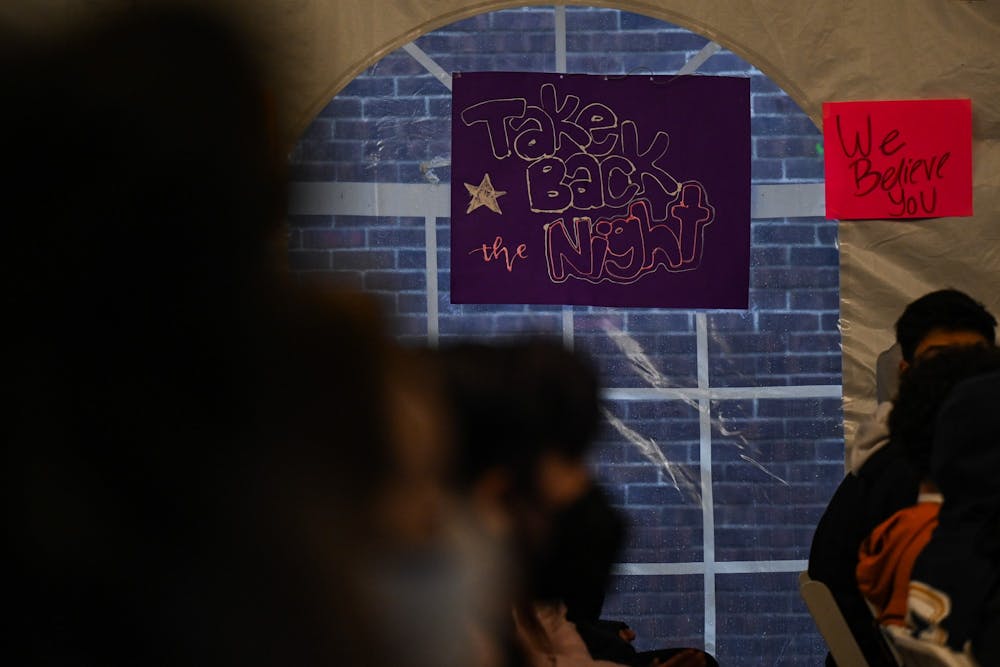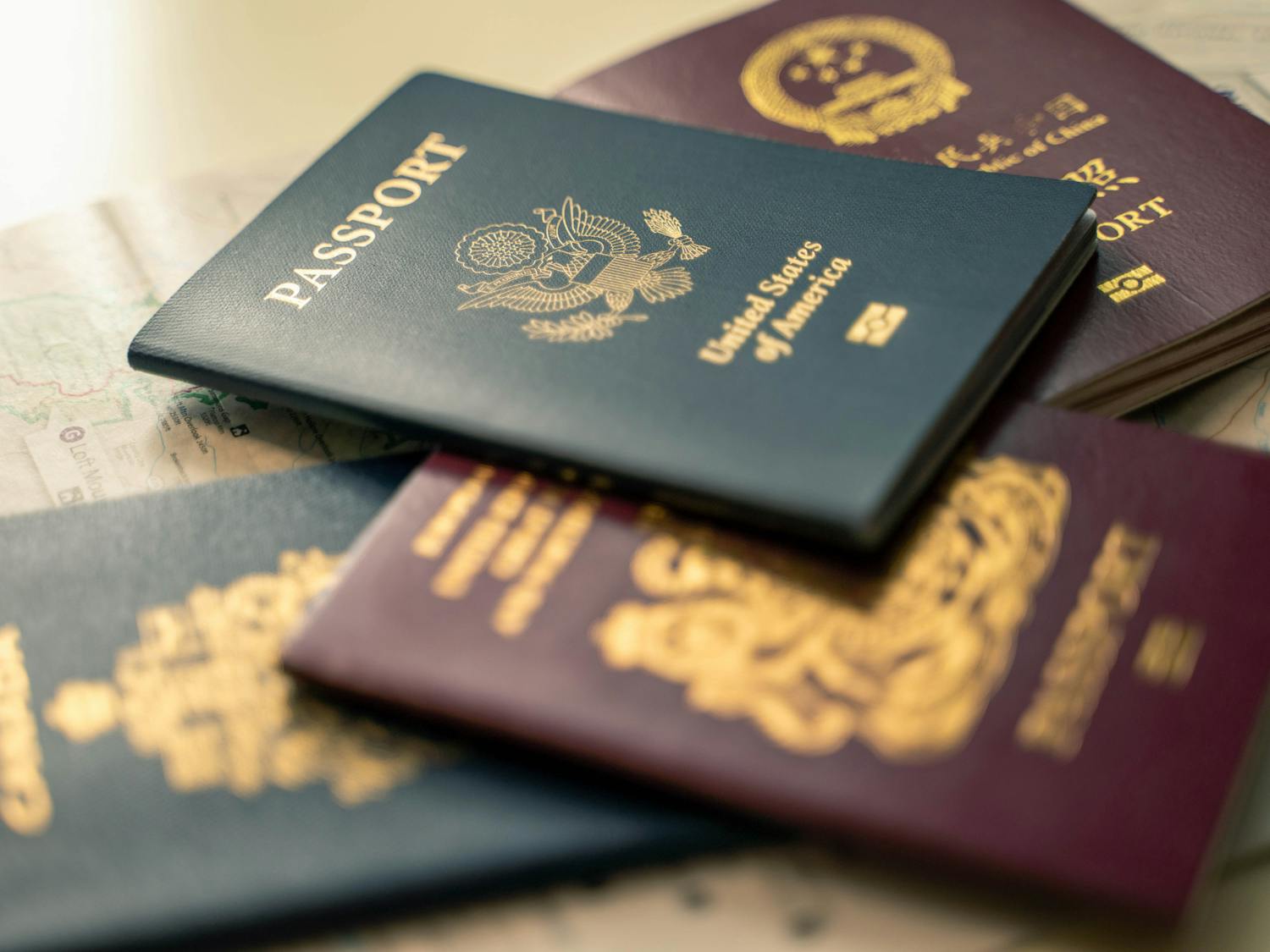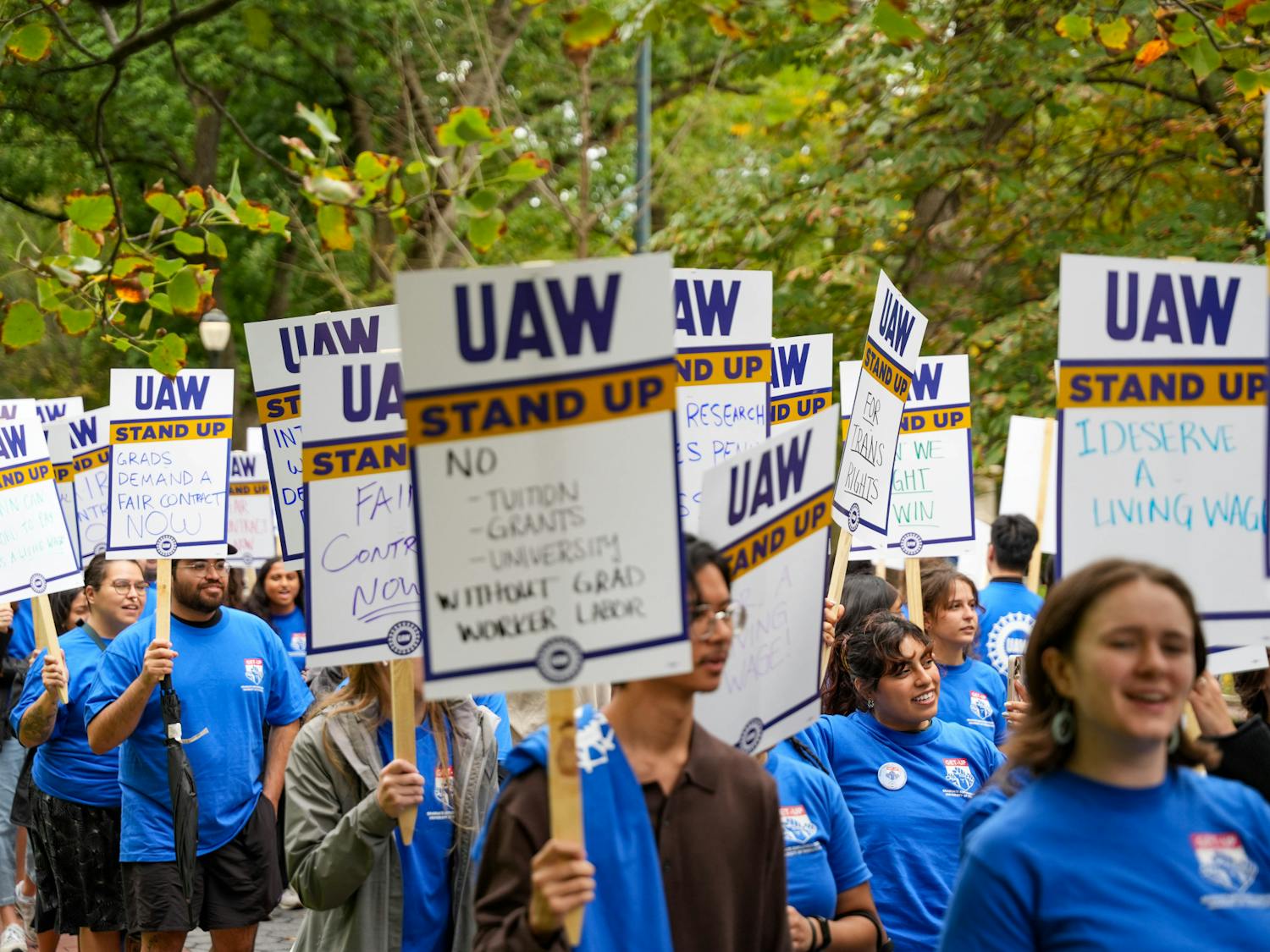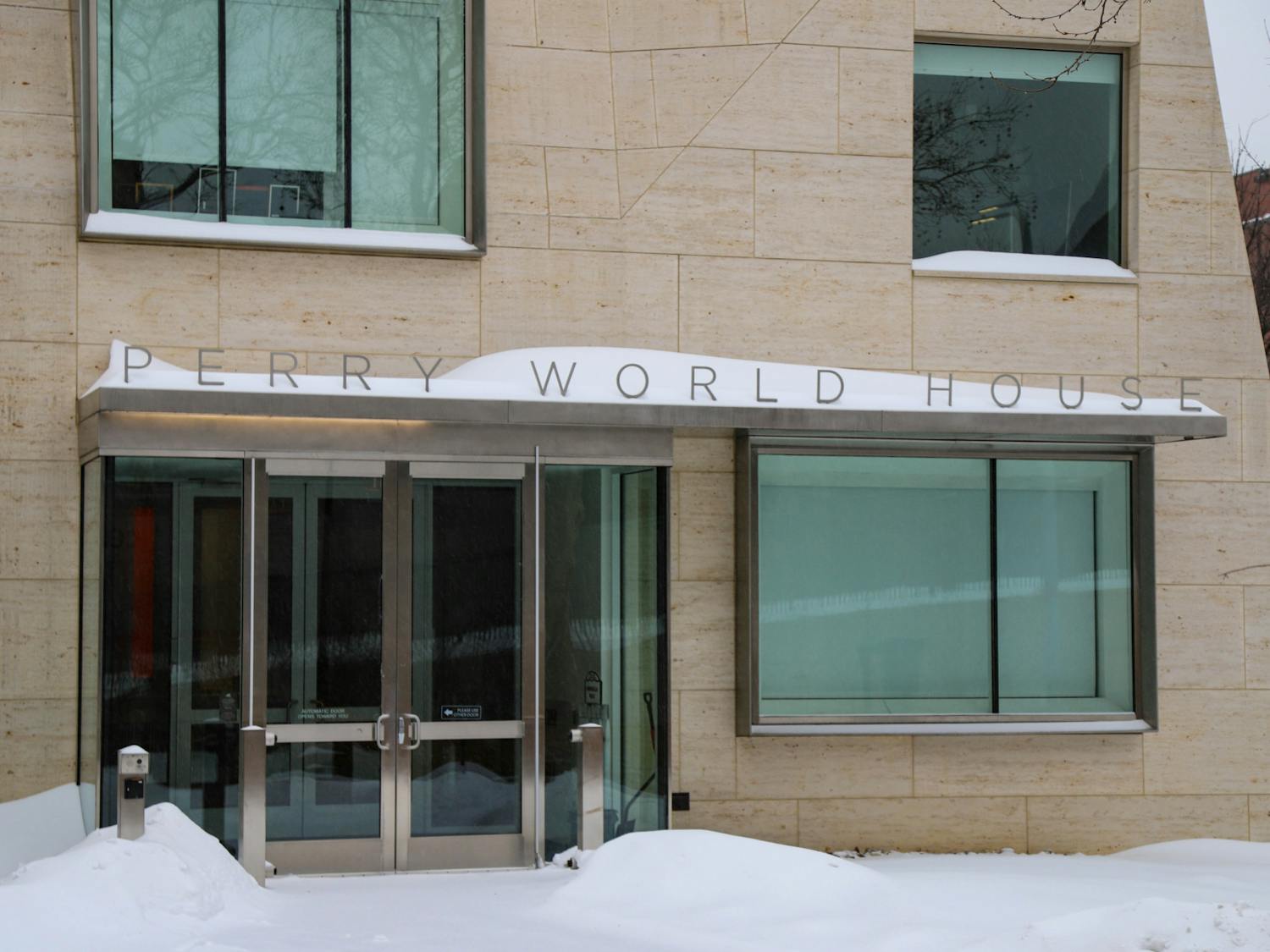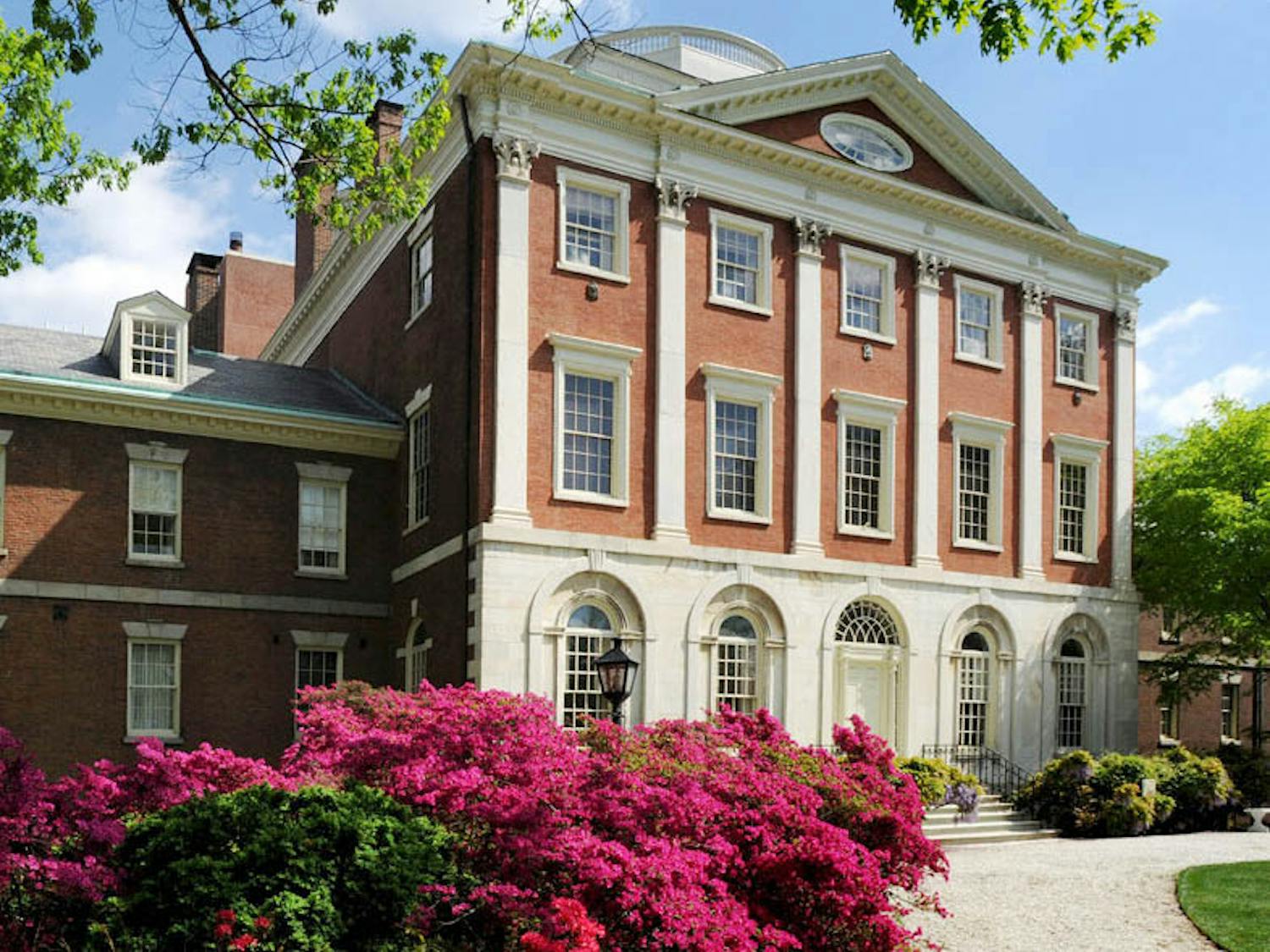The Abuse and Sexual Assault Prevention club at Penn hosted Take Back the Night — an event that allows survivors of sexual assault to share their stories — in person for the first time since 2019 on April 7.
The event, which has been virtual since 2019 due to COVID-19, was held starting 5 p.m. in the Graduate School of Education tent and featured a rally followed by a survivors' vigil. The goal of the event was to “provide a space for survivors to be heard and share their stories,” according to College sophomore and Abuse and Sexual Assault Prevention Chair Hannah Bases.
Several other student groups co-sponsored the event — including Penn Anti-Violence Educators, the LGBT Center, the Penn Women’s Center, Penn Violence Prevention, Penn Benjamins Peer Counseling, and Penn Special Services.
Take Back the Night is an international campaign that aims to take a stand against interpersonal and sexual violence. On Penn’s campus, Take Back the Night typically includes a speaker on College Green, a rally and a march around campus with performances from the Penn Band, and a survivor speak-out and candlelight vigil.
This year, Take Back the Night began with a rally open to the public that featured speeches by members of Abuse and Sexual Assault Prevention leadership and representatives from campus resource centers.
Bases began the event by giving remarks about Penn’s obligation to protect survivors of sexual and interpersonal violence, emphasizing that University-wide efforts must be made to educate Penn students about the importance of advocacy.
"Consent and resource education cannot end with a session at [New Student Orientation]," she said. "We cannot let the passage of time or changes in leadership detract from this important message."
Two health professionals spoke at the event — Laura Sinko, an assistant professor at Temple University, and Jeannine Cicco Barker, a former psychologist at Counseling and Psychological Services and current lecturer in the Penn Master of Social Work Program.
RELATED:
Public Health and Wellbeing oversees another semester of online self-help programs
PAACH hosts “AsianTalks” — a student-led group therapy discussion series
“You can’t talk about sexual violence without talking about gender," Sinko said in her speech, adding that one in four women experience sexual harm in their lifetime. “College campuses are full of these [gendered] power dynamics that cultivate sexual harm."
Barker spoke about what she deemed the "revolutionary" power of hope and the importance of centering the voices of marginalized communities when healing from sexual and interpersonal violence, saying that “holding onto radical hope is powerful."
“Healing is a process; it’s finding ways to integrate who we are with what we’ve been through," she said.
Interim Penn President Wendell Pritchett was scheduled to provide brief remarks at the event but was unable to attend, according to Abuse and Sexual Assault Prevention leadership, who said that they received an email from his office a few hours before the event.
After the rally, a survivors' vigil took place from 6:30 p.m. to 9 p.m. At the vigil, no phones were allowed, and confidential resource centers were also present.
Abuse and Sexual Assault Prevention works to increase awareness about sexual violence on Penn’s campus, hosting speaker events and working closely with Penn Violence Prevention and the Penn Women’s Center to support survivors.
College senior Sarah Payne — who served as the 2021 Abuse and Sexual Assault Prevention Chair and is currently a Penn University Council representative — said that in 2018, the Abuse and Sexual Assault Prevention Board was restructured to redefine the organization's goals. Now, she added, it focuses more on advocacy and education about interpersonal and sexual violence.
The co-sponsors aimed to help increase accessibility and awareness of the event by participating in poster-making events that Abuse and Sexual Assault Prevention held.
“We do not want survivors to feel like they have to put on these events themselves,” Bases said. Payne echoed these sentiments, adding that “seeing and hearing people put their complex experience into words and sharing their stories is really powerful."


